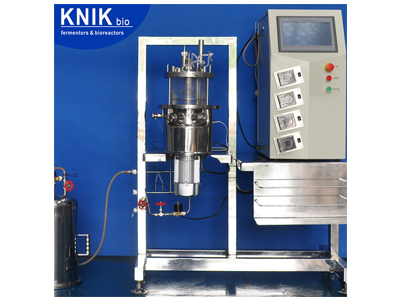Bioreactors and Fermenters are among the most used tools in biotechnology. They may seem alike, but there are features that distinguish them, and that’s important to know. In this article, we’ll find out what bioreactors and fermenters do, how they are used, how they differ from each other, and how they are used to manufacture products.
What are Bioreactors and Fermenters?
Bioreactors and fermenters are used to nurture tiny living things, including bacteria, yeast and fungi. The latter is more about the way that men are designed and function. A bioreactor is a container that provides the perfect environment to support the growth of microorganisms. It also has instruments to monitor and adjust things such as temperature, pH (the acidity or basicity of something) and nutrients.
A fermenter is a bioreactor used for fermentation. Fermentation is the process by which microorganisms break down food to create energy. Fermenters contain pieces that mix its contents and introduce oxygen to the microorganisms.
How Do We Use Bioreactors and Fermenters?
Bioreactors and fermenters are two different things. Bioreactors can serve a variety of functions, like growing cells, making proteins. Fermenters are used for processes like brewing beer or producing biofuels. Each of these vessels are designed with the intent of fulfilling the specific task they are meant for.

8Roles of Biotech Processes
In biotech, it's bioreactor vs fermenter. Bioreactors are appropriate when you need a lot of control over the conditions, such as temperature and mixing speed. These also help create drugs, enzymes and other bio-products. When microorganisms are used to make products, fermenters are involved. They are building blocks for food, drinks, antibiotics and biofuels.
A Comparison of Their Uses in Industry
In the world of industry, both bioreactors and fermenters are important for making many products. Bioreactor reactors are used in fields as diverse as medicine and biotechnology to produce vast quantities of bio-based products. They are adaptable to different levels of production.
Fermenters are used in making fermented products like yogurt, beer and ethanol, in food and drink production, farming and biofuels. They are designed specifically to aid the fermentation process and make more product at the same time.
Application in bioreactors and fermenters
Bioreactors and fermenters are used in scientific research to allow scientists to study how microorganisms grow in controlled conditions. Bioreactors are commonly employed to evaluate the effects of various factors on microbial growth. They enable scientists to have precise control over the experiment and obtain accurate results.
Fermenters are used in research to better understand fermentation and discover the most efficient ways of producing particular products. Researchers can experiment with different kinds of microorganisms, nutrients and conditions to find the most effective methods. Fermenters are of great practical value for researchers in microbiology and biotechnology.
Conclusion
To summarize, the bioreactors and fermentes are significant tools, of different roles, in biotechnology. Bioreactors are vessels that give a variety of controlled conditions in which microorganisms can grow and fermenters are the vessels that are built for the fermentation process. Understanding the distinctions between bioreactors and fermenters allows us to apply them effectively in industries and in fermentation lab eesearch.



